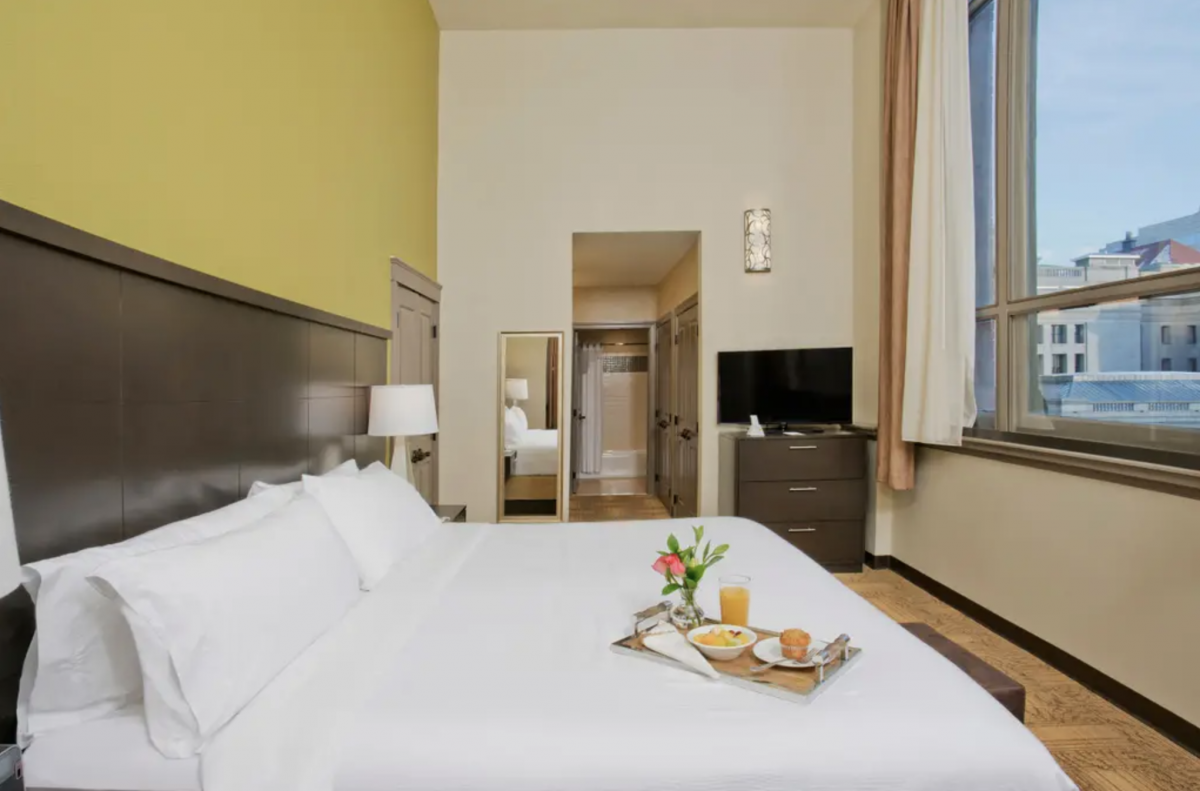
In recent years, the popularity of Airbnb-style rentals has surged in Baltimore—especially in places like Fells Point, Canton, and Federal Hill due to their waterfront amenities. Since the emergence of these temporary rental properties, some residents and hotel chains have had varying issues with the influx of traffic to the neighborhoods. Residents have complained about increases in vandalism, crime, and noise, while hotels complain that the renters are getting away with paying less in taxes for the same amenities.
Councilman Eric Costello of the city’s 11th district heard those complaints and decided to take action by proposing a bill that would require hosts of those properties to register with the city and impose a 9.5-percent hotel tax on all stays. The ban also would prevent hosts from renting other properties besides their primary homes. The bill passed on Thursday night.
“It gives the city a swift and decisive mechanism to revoke problem operators licenses,” Costello said in a statement. “Number two, it captures the hotel tax which the city was missing out on. Number three, it prevents neighborhoods from becoming overly transient.”
In addition, Costello introduced an amendment to the bill earlier this week that would make sure that residents from outside the city can take advantage of the grandfather clause that allows existing hosts to rent their primary properties plus on additional property.
Local Airbnb “superhost” Natalia Cruz, who frequently hosts guests at her Inner Harbor apartment, has no problem with the bill saying it’s a fair move that will help grow the city’s economy.
“The majority of my guests are business travelers who coming to Baltimore for conventions and corporate work,” she explains. “Part of these taxes will go to Visit Baltimore that brings most of the conventions to the city. So why should I be opposed to it? As much as I want to keep more money to myself, I like to be fair. As an Airbnb host, I am taking a fair share from other hotels who pay taxes and other fees. If they start closing, it would be good for Airbnb hosts, but what about the city?”
Baltimore is not the first city to impose these types of rules and taxes on short-term rentals. As companies like Airbnb and HomeAway gain popularity, cities across the country have begun levying taxes on these properties. Montgomery County currently charges 7 percent of the listing price including any cleaning fee and guest fee for reservations 30 nights and shorter.
Beginning in 2019, Seattle will begin collecting taxes of $14 per night for short-term home rentals and $8 for short-term room rentals. The money collected from the tax will support community-initiated development projects and creating affordable housing. Hosts are also required to obtain a special license and can only operate on rental at a time.
Similarly, two years ago, Airbnb guests in Loveland, Colorado began paying the city’s 3-percent lodging tax as part of a direct partnership between Airbnb and the city.
In Baltimore, the 9.5-percent hotel tax will be effective at the end of 2018 and is forecasted to raise nearly $1 million per year. The other restrictions—including renting one property at a time—will take effect at the end of 2019.
